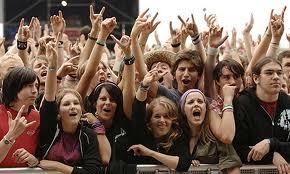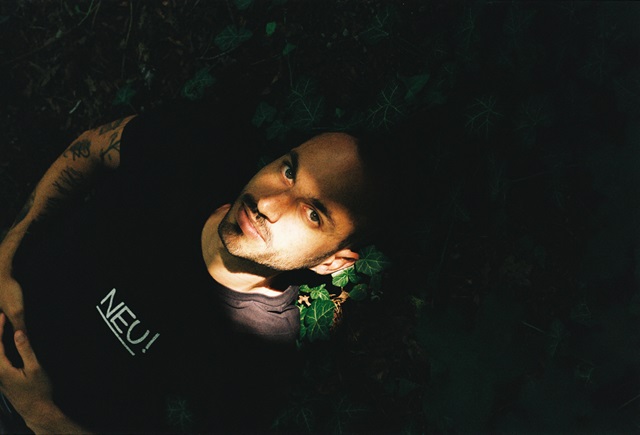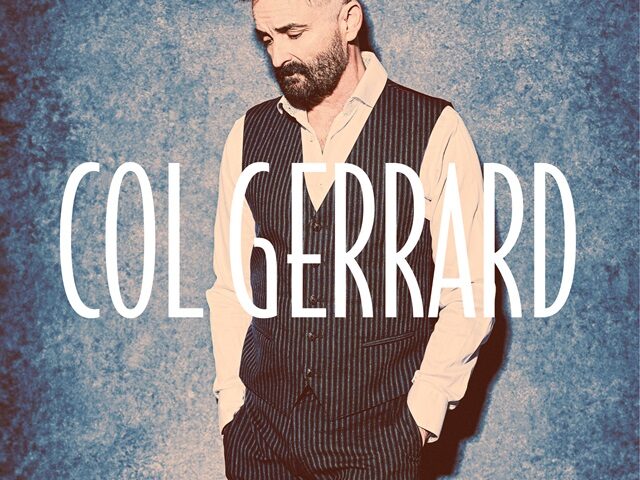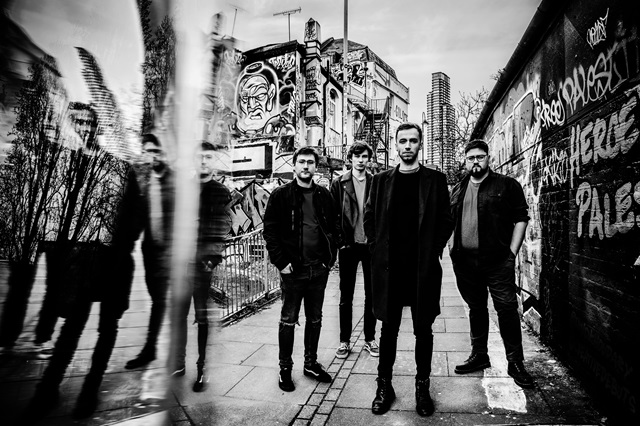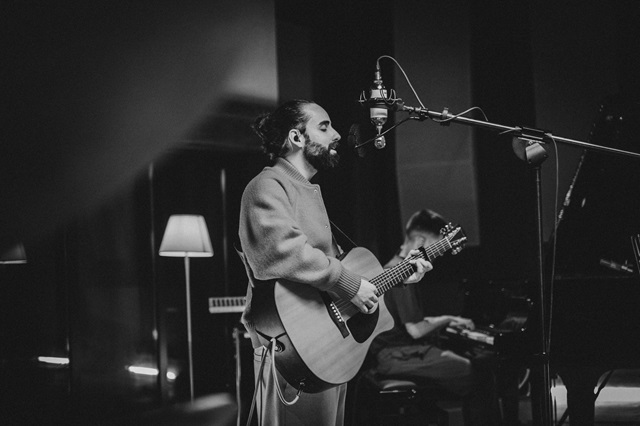Josh Kirby spends most of his time doing work for the band Moving Mountains. However like most musicians nowadays, he stretched his creative wings and began a side project. This side project, Mount Carmel and the End of the World, has found its way into my music collection. As I still dig into the project debut LP Year.01, I discovered new veins of passion that remind me clearly of bands like Brand New and Thursday. Recently, I had the chance to interview Josh about the project and some of his views on music.
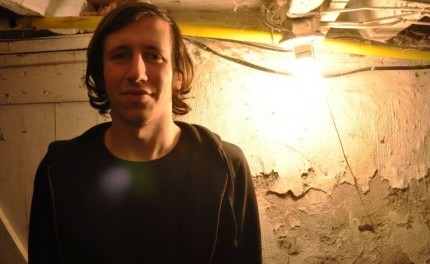
Ryan Kearns: Your band is described on its Facebook and website as a weekly music and art project. Would you care to elaborate what is meant by that?
Josh Kirby: This band was started as an experiment to try out new models of music distribution. The idea was to write, record and release a new song every week and pair each song with an original poster done by Nicholas Pizzolato (Moving Mountains). The ten songs that make up Year.01 are a result of that experiment, one song a week for ten weeks with ten original designs. Soon after the tenth song I became really busy with with touring and wasn’t able to keep up with the project so I placed it on hiatus and haven’t been able to restart it since.
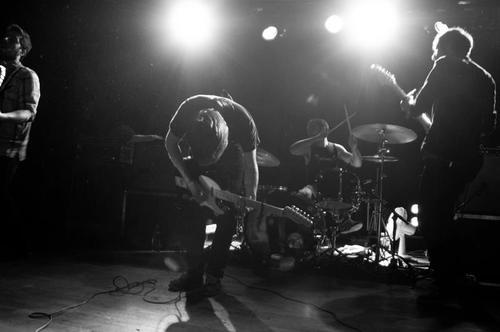
Ryan: With only one album release, the band is still a young band in the scene. How do you see the band going from here into the future?
Kirby: Currently, since the project’s on hiatus and since I’ve been busy with other projects, I’ve just been writing and demoing a lot. Once my life settles down a bit I’d like to return to a version of the “song-a-week” model that I was working with before.

Ryan: In a recent interview with Pitchfork, My Morning Jacket frontman Jim James said “you relate to it because it’s so painful, but I’m tired of being in pain”. When he said that he was talking about his love for Nirvana, Bob Dylan, and Neil Young. That being said, a good bit of your music talks about pain, but in a good way instead of a whiny way. How do you feel about the way music deals with pain? Does it help the artist and audience contend with it or does it do more harm than good?
Kirby: I’m generally a pretty happy guy, happier, I’d say, than most and in my own experience, the pain that comes across through my music is almost always by accident. I’ll write something in a very stream-of-conscious way and then look back and think “Holy shit, what’s wrong with me?” I guess it’s just my sub-conscious’ way of balancing out my personality.
As a listener, music is a great way to deal with anything negative. If you’re feeling crummy about something and you hear a song where the artist is talking about feeling crummy about something then you feel unified in your “crummy-ness” and that usually makes you feel better. The danger, though, can be looking too deeply into the specifics of what the artist is actually talking about. Finding out a song you connect with on an incredibly deep level is actually about a cat or about a cheeseburger can be super disappointing For me, it’s better to just interpret the way it best relates to you and let the artist keep the true meaning to themselves.
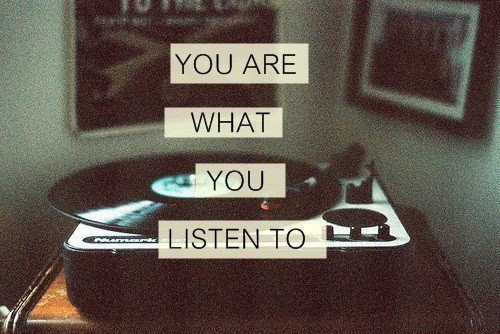
Ryan: In a book written by Eric Nisenson, a question about the nature of all art was addressed when talking about John Coltrane, the question being : “Is it a means for an artist to exorcise his demons, a kind of therapy or method of self-investigation? Or is it intended to be a form of communication between the artist and the audience?”. What do you think art is for you as a musician and artist?
Kirby:For me it’s a little bit of both, the process of writing is very much a process of self-discovery (which is sometimes therapeutic but mostly a frustrating dive into the worst things about yourself) but then choosing to put that art out into the world is my way of trying to communicate to an audience.
Regardless of how an artist views the nature of their art I think it’s very important that it’s always a representation of themselves and their views. If you’re not creating art first and foremost for yourself then you’re not really an artist, you’re just trying to be the best version of something else, and when you do that you will always fall short.
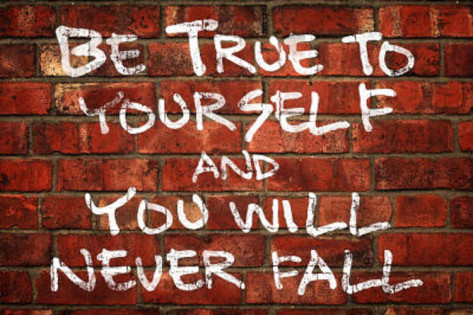
Ryan: When listening to your album Year. 01 I began to feel like one of the major influences on the band’s material on the album was the band, Brand New. How much of an influence was the band on the sound and construction of Year. 01? Also, what else has influenced you as a musician?
Kirby:Brand New has definitely been a major influence on my entire career as a musician, they’re one of those bands that’s sort of ubiquitous as an influence to every band out now, especially in this scene.
Influence for me isn’t usually a linear progression of “I like this band, now I’m going to write a song like this band.” Most of the time I can’t really tell where my influences came from until a song is completed and I can go back and say “That part sounds like this band and this other part sounds like this band mixed with this band.” It’s also not really dependent on what I’m listening to either, I could be influenced by a song I’ve only heard once and not be influenced by something I actively listen to every day. There’s no real way to control what filters out into what I’m writing. You wouldn’t believe how many times I’ve written something and then later thought “Shit, is that ‘Call Me Maybe’?”
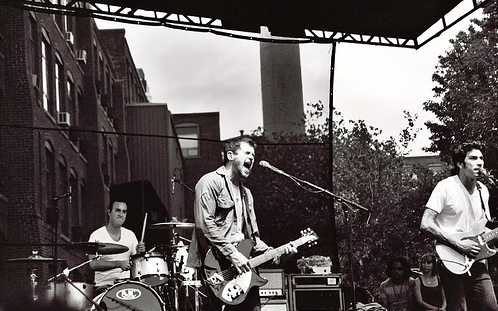
Ryan: Since you run the entire process of writing the band’s material, do you feel like that makes it harder because of the work load being greater or easier because you are allowed to have your creativity run wild?
Kirby: Solo projects like this are kind of a double edged sword. There’s no one to have creative conflicts with during the writing process but that also means that when you’re stuck or you have writers block you have no one to lean on. Creativity is weird like that, especially for me, it doesn’t usually flow like this ‘magical life-energy’ like most people think, it kind of sputters and coughs and chugs along randomly like an old old car. I would say probably 85% percent of the time I’m “writing a song” I’m really just sitting in a chair holding my guitar and staring at the wall.
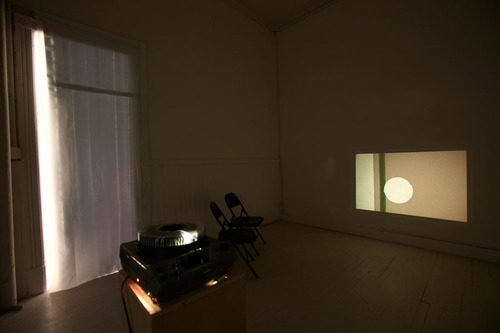
Ryan: One of my personal favorite tracks off of Year. 01 was the track “onceevertwiceover”. How did it come to life and how did the songwriting process go?
Kirby: That song, like most songs I write, started with some random strumming and humming that was probably pretty indistinguishable from a dying animal. In that mess somewhere I found a little sliver of something that I liked and I used that as the starting point for my next round of strumming and humming. Then after probably about an hour of this iterative loop of messy garbage a melody or a structure or a chorus or verse starts to bubble up to the surface. At that point I usually record the little bit of a song I have so I don’t forget it and walk away from it for a little while. Then when I come back, usually the next day, I make sure I still like what I had and then I continue the loop until the song’s done, however long that takes.
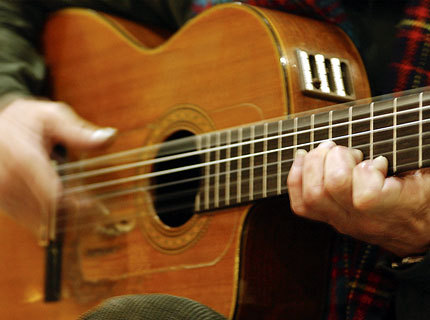
Ryan: Most bands name their albums off of a song from the album. How did you come up with the name Year. 01 since there is no title track?
Kirby: The album was actually named before any of the songs were written. My ultimate vision for the project was to be able to do a song a week for most of the year and build this catalog of music over time (year.01, year.02, year.03…) but I ended up getting too busy to keep up the pace of a song a week so “Year.02” hasn’t materialized yet.
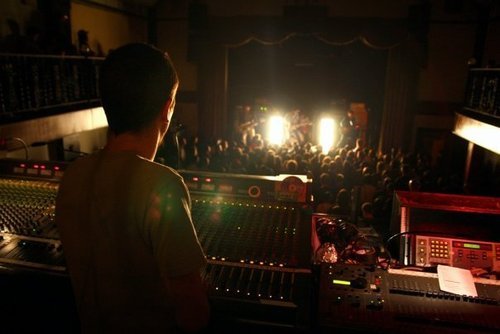
Ryan: How did you happen to name your band Mount Carmel and The End Of The World?
Kirby: It’s actually a line from the book “Good Omens” by Neil Gaiman and Terry Pratchett. There’s a character in the book called Death who’s speech is written in all caps and there is one page where he only has two lines “MOUNT CARMEL” and “AND THE END OF THE WORLD.”
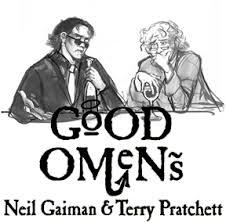
Ryan: Now in this day and age with the internet being both a blessing and curse to musicians, why are you a musician?
Kirby: I’ve been playing music since I was two years old so at this point it’s not really a choice to be a musician, it’s just part of living.
The internet is only a curse to people who decide it’s a curse and give up on trying to innovate. I’ve met so many musicians on the road who complain about how many more records they would be selling if people weren’t stealing their music online but fail to realize that it’s exactly that word-of-mouth file sharing culture that made their band popular in the first place. In my mind, the exposure that musicians have gained because of the internet has opened far more revenue streams than it has closed. Sure, no one is buying records anymore, and that sucks, but since artists now have a direct link to their fans they can utilize that to figure out what fans are actually willing to spend their money on and give that to them instead. Artists can print special edition merch for their fans, do limited edition art, stream live concerts from their bedrooms, sell weird crafts that they make, make goofy YouTube videos, promote their blogs…. what ever else they’re into besides music that they can use as a revenue stream and embrace the internet’s ability to turn their music-fans into their personal-fans.
